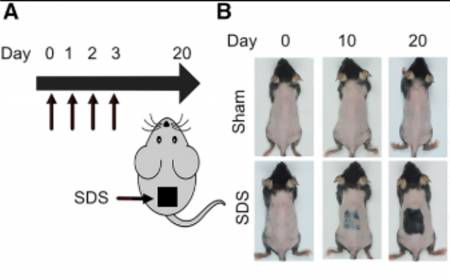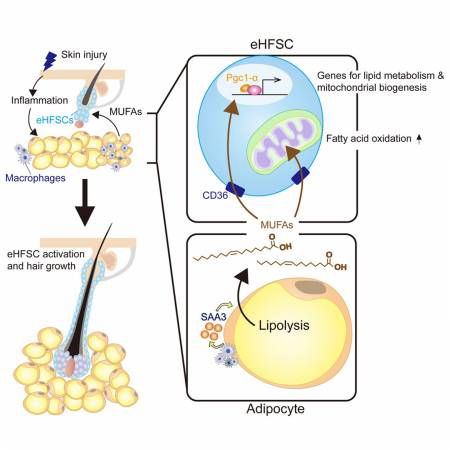Researchers believe the breakthrough formula could soon be developed into an everyday skincare product.
Scientists have unveiled what could be a major breakthrough in the fight against hair loss — a new treatment that appears to restore growth in just 20 days. Experts are calling it one of the most promising advancements seen in years.
Hair loss affects over 80 million Americans, impacting both men and women, though it’s far more common among men. The most prevalent form, androgenetic alopecia, can start early in adulthood and often worsens with age. Studies show that around two-thirds of men experience noticeable thinning by age 35, and by 50, that number climbs to nearly 85 percent. The emotional and psychological effects can be severe, pushing many to pursue expensive and risky solutions.

To preserve a youthful look, countless people turn to hair transplant surgery — an option that can be costly, painful, and not always successful. While the procedure is generally safe, the National Institutes of Health (NIH) warns that patients can experience side effects ranging from itching and scarring to infection or even skin necrosis.
Given those risks, researchers say a non-surgical solution could completely change the game. If the new treatment continues to deliver such impressive results, many traditional hair restoration methods might soon become obsolete.
Researchers from National Taiwan University have developed a topical serum that can be applied directly to the skin, showing remarkable early results in lab tests. Published in the journal Cell Metabolism, their study demonstrated that the serum successfully restored hair growth in mice under controlled conditions.
The serum works by stimulating fat cells beneath the skin, which then activate dormant hair follicles — leading to visible regrowth in previously bald areas. Unlike many chemical-based products, this serum is derived from naturally occurring fatty acids, making it gentle on the skin and less likely to cause irritation. The team believes it could eventually be turned into a safe, over-the-counter skincare product.

Study author Professor Sung–Jan Lin from National Taiwan University was so confident in the results that he decided to test the formula himself. Speaking with New Scientist, he said: “I personally applied these fatty acids, dissolved in alcohol, on my thighs for three weeks and I found it promoted hair regrowth.”
The discovery also builds upon previous research suggesting that minor skin irritation or injury can sometimes trigger hair growth — a phenomenon known as hypertrichosis. This insight provided a scientific foundation for the team’s experiments on controlled stimulation and regrowth.
To test the theory, the researchers applied a mild irritant, sodium dodecyl sulfate (SDS), to shaved patches of skin on mice. Within 10 days, they observed the formation of new hair follicles — some barely a fraction of a millimeter wide — in the treated areas. Notably, no regrowth occurred on untreated patches, confirming that irritation directly triggered follicle activation.
The study suggests that irritation encourages immune cells to migrate into the fatty layer beneath the skin, where they release fatty acids absorbed by dormant follicle stem cells — effectively “waking up” those cells and restarting hair growth.
“These results demonstrate that skin injury not only induces tissue inflammation but also stimulates hair regeneration,” the study authors wrote.
To minimize irritation, the researchers later refined their formula by using modified fatty acids without chemical additives. The adjusted version achieved the same regrowth results with significantly fewer side effects, making it more suitable for long-term or cosmetic use.
The next step for the team is human testing, where researchers will focus on determining safe dosage levels and scalp application methods. If the results remain consistent, this could mark one of the first truly effective topical treatments for hair loss.
“Supported by our experimental results, demonstrating hair growth activation upon topical application of monounsaturated fatty acids, their natural existence and established safety profile suggest considerable potential for treating hair loss conditions in the future,” the authors concluded, expressing optimism that this discovery could one day offer millions an easy, affordable, and non-invasive solution to hair loss.
